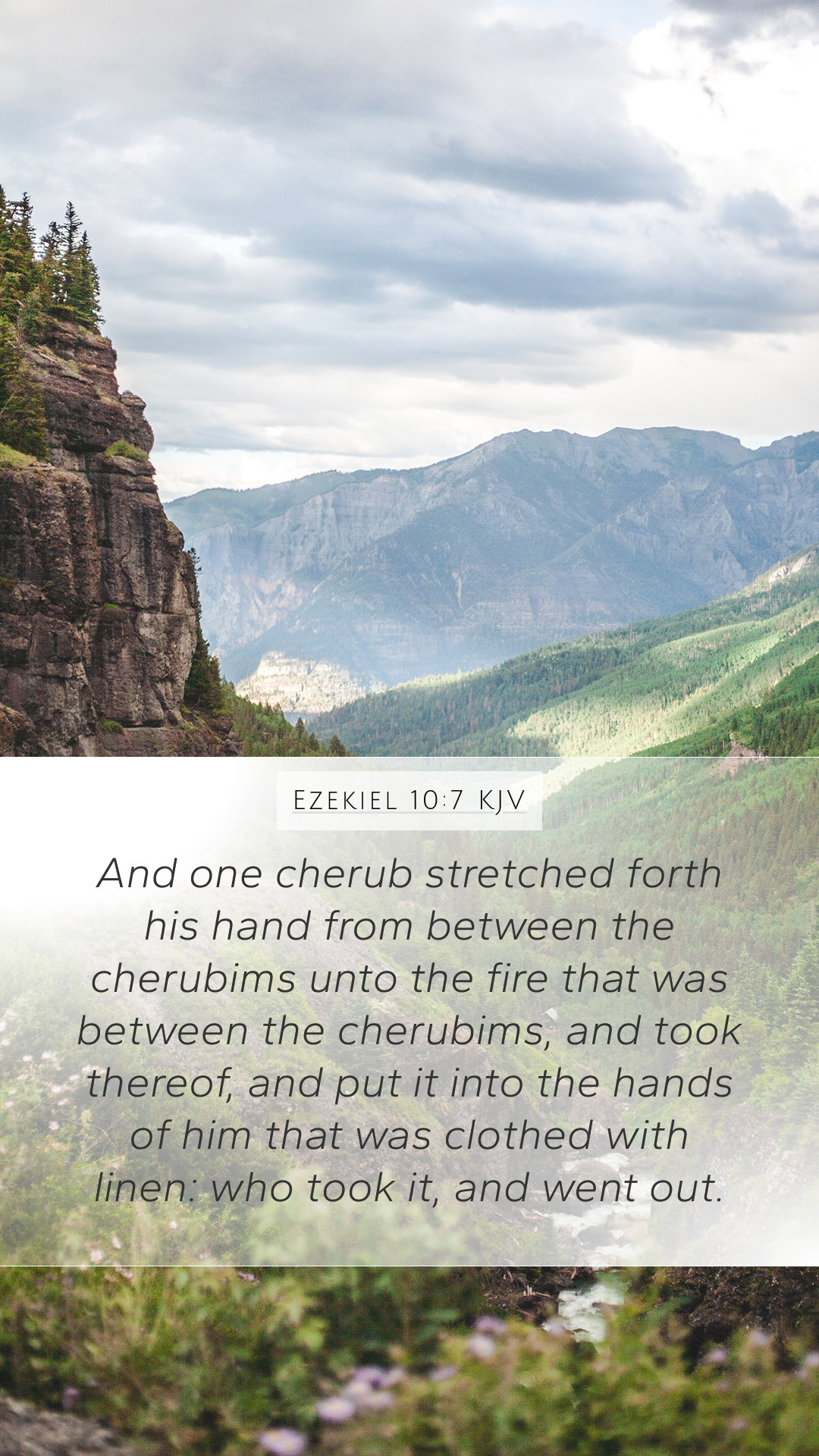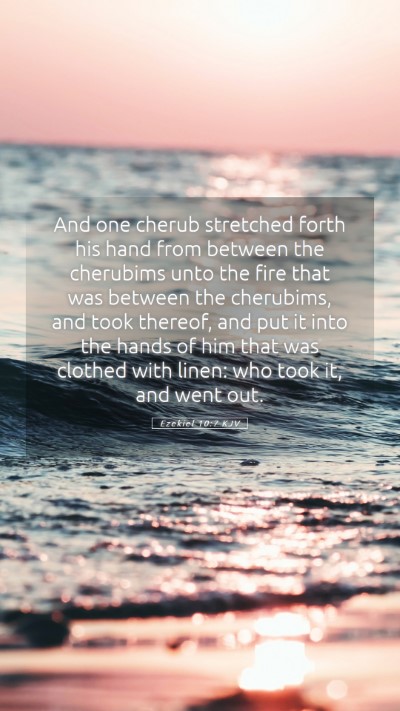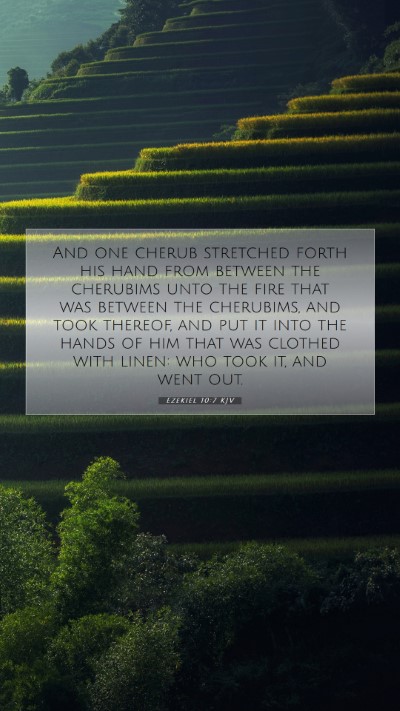Bible Verse Commentary on Ezekiel 10:7
Ezekiel 10:7 presents a profound insight into the nature of divine intervention and the role of heavenly beings in carrying out God's will. This verse reads:
"And one cherub stretched forth his hand from between the cherubim unto the fire that was between the cherubim, and took thereof, and put it into the hands of him that was clothed with linen: who took it and went out."
To understand this verse fully, we will draw from the wisdom found in various public domain commentaries. These will help in offering a comprehensive analysis of the verse's meaning, interpretation, and significance.
Key Themes and Insights
-
The Role of Cherubim:
The cherubim are significant beings within the heavenly realm, often appearing as guardians of God's holiness.
According to Matthew Henry, they symbolize the proximity of God to His people and His active participation in human affairs.
-
Symbolism of Fire:
Fire in this context represents purification and the presence of God. Albert Barnes notes that the fire taken by the cherubim signifies the divine judgment or cleansing that is about to be enacted upon Jerusalem.
-
The Act of Taking Fire:
Adam Clarke emphasizes the importance of the act where the cherub takes the fire and delivers it to the one clothed in linen. This act signifies the transition from heavenly decree to earthly execution, fulfilling God's plans.
Understanding Scripture
This verse speaks to the larger narrative of Ezekiel, where God's glory and judgment are prominent themes. It reflects the cosmic order where heavenly beings facilitate God's intentions.
Bible Verse Meanings
The meaning of Ezekiel 10:7 can be viewed in multiple layers:
-
Divine Judgment:
The transfer of fire from the cherub to the other figure symbolizes God's impending judgment on Jerusalem.
The act encapsulates both divine wrath and the subsequent cleansing of sin.
-
God's Sovereignty:
This verse reinforces the concept of God's sovereignty over all creation. The cherubim, acting under divine command, execute God's will perfectly, illustrating that nothing happens outside of God's authority (Matthew Henry).
Bible Study Insights
For those engaging in Bible study groups or online Bible study, Ezekiel 10:7 can serve as a foundational verse to discuss themes of God’s judgment and holiness.
It prompts questions such as:
- What does this verse reveal about God's nature?
- How can we understand God's holiness in relation to sin?
- What does the imagery of cherubim tell us about divine protection and judgment?
In-depth Bible Verse Analysis
This verse encourages a deeper look into the historical context of Ezekiel's prophecies. The prophet was addressing a nation in distress, and the imagery of divine beings acting to cleanse and judge offers both a warning and a message of hope for eventual restoration.
Application of the Verse
When considering how to apply Ezekiel 10:7 to daily life, it’s essential to reflect on personal sin and the need for purification.
The act of God sending judgment can remind us of the consistently present need for repentance and connection to God's grace.
Cross References
- Isaiah 6:6-7: The cleansing of Isaiah through the coal from the altar.
- Revelation 8:5: An angel takes fire from the altar and hurls it upon the earth.
- Exodus 25:18-22: The description of the cherubim in the mercy seat and its significance in God's presence.
Conclusion
Ezekiel 10:7 is a rich verse filled with meaning and significant implications about God's character and purpose.
By engaging with biblical exegesis and various commentaries, we gain a better understanding of this passage, allowing it to speak into our lives today.


